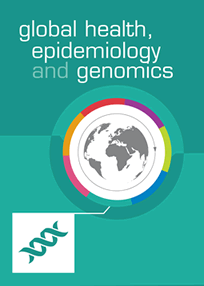This blog post was written by María Lazo-Porras, Andrea Ruiz, Cesar Ugarte-Gil, Aldo Lucchetti, Germán Málaga, María Kathia Cárdenas, María Amalia Pesantes Leprosy, like many rare diseases, can often go ...
Happy New Year! 2016 promises to be an exciting year for Global Health, Epidemiology & Genomics (GHEG) as the journal is officially launched. We have been delighted by the response ...
A review of the year’s most notable global health news stories, events and research breakthroughs, and a look towards future challenges in 2016 and beyond. This year has seen a ...
HIV/AIDS is a global killer that affects an estimated 37 million people worldwide.(1) Despite success in reducing the burden of HIV, we are now facing treatment challenges due to resistance ...
The Human Leukocyte Antigen (HLA) is a complex and diverse area of the genome and plays an important role in transplantation. A lack of bone marrow registries means that variation ...
Once thought to be rare in sub-Saharan Africa (SSA), an estimated 20 million adults are now living with diabetes, a burden that is predicted to more than double by 2035.(1) ...
The Human Heredity and Health in Africa (H3Africa) consortium is an initiative of the Wellcome Trust (UK) and the National Institutes of Health (USA), in partnership with the African Society ...
Mental health disorders are a huge burden for health systems, particularly in low and middle income countries. A new research hub based in Sao Paulo and Lima is exploring the ...
With changing patterns of diseases in Africa, it is increasingly important to train young scientists in order to build research capacity across the continent. Research training is fundamental to enabling ...
In mid-June 2015, researchers from Denmark and the US announced the much anticipated results of their genetic analyses of the remains of Kennewick Man. Using genetics, scientists have finally resolved ...










